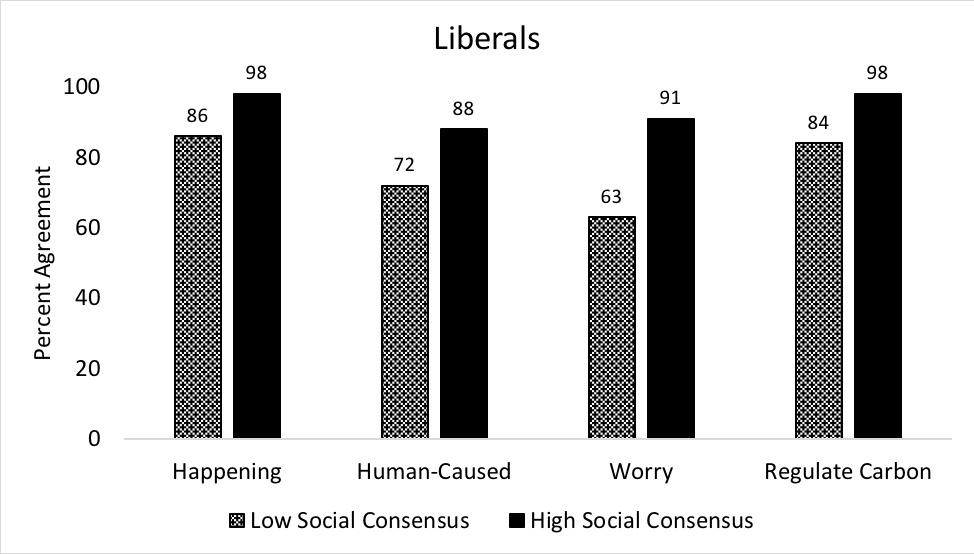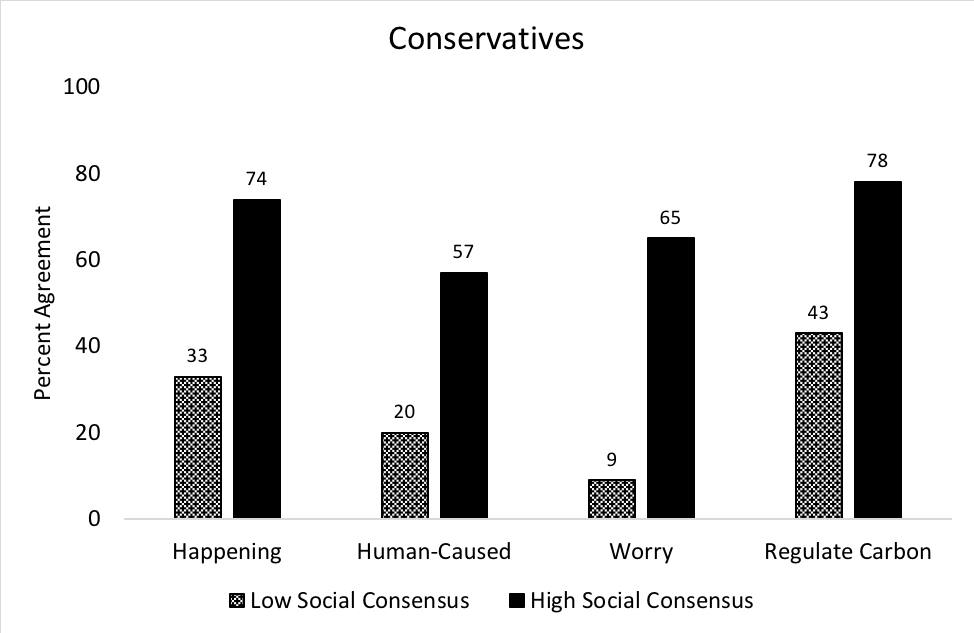Peer-Reviewed Article · Jun 3, 2019
Reducing ideological bias on climate change
By Matthew Goldberg, Sander van der Linden, Anthony Leiserowitz and Edward Maibach
Filed under: Policy & Politics

We’re pleased to announce the publication of a new research article, “Perceived social consensus can reduce ideological biases on climate change” in the journal Environment & Behavior.
It is well-known that conservatives in the United States are substantially less likely than liberals to accept that human-caused climate change is happening, and less likely to support climate policies. However, a large body of research has shown that perceived social consensus—the degree to which an individual believes others in their social group agree about an issue—has a strong influence on people’s own beliefs. Recent research suggests that conservatives may be especially influenced by perceived social consensus amongst their peers.
Our study, based on nine nationally-representative surveys (total N = 16,168), investigated whether the ideological divide on global warming is smaller among people who have close friends and family who care about the issue. In short, we found it is. Specifically:
- People with high perceived social consensus are more likely to believe global warming is happening and human-caused, and they are more likely to worry about it, support the need for public action, and support regulation of carbon pollution and electrical utilities. These findings are significant for people across the political spectrum.
- The influence of perceived social consensus was stronger among conservatives than liberals. For example, only 33% of conservatives who perceive low social consensus (i.e., who believe that taking action to reduce global warming is not important to their friends and family members) accept that climate change is happening, while 74% of conservatives who perceive high social consensus accept it is happening (see Figures below).
Overall, our findings show that perceived social consensus is an important factor in shaping global warming beliefs, worry, and policy support—especially for conservatives. Further, this research emphasizes the importance of encouraging people to talk about climate change with their friends and family. This is especially important in light of our previous work showing that most Americans say climate change is a personally important issue, yet rarely hear about it from their family and friends.
The Role of Social Consensus in Climate Change Beliefs, Worry, and Policy Support Among Liberals and Conservatives
Note. Differences in climate change beliefs (happening and human-caused), worry, and support for regulating carbon as a function of perceived social consensus. Data in figures are from the May 2017 wave of Climate Change in the American Mind (n = 1,266), the most recent data included in this research study.
The full article is available here to those with a subscription to Environment and Behavior. If you would like to request a copy, please send an email to climatechange@yale.edu, with the subject line: Request Social Consensus Paper.
Goldberg, M. H., van der Linden, S., Leiserowitz, A., & Maibach, E. (2019). Perceived social consensus can reduce ideological biases on climate change. Environment and Behavior, doi: 10.1177/0013916519853302
This research utilizes data from the Climate Change in the American Mind surveys, conducted by the Yale Program on Climate Change Communication and the George Mason University Center for Climate Change Communication. This project was supported by the Schmidt Family Foundation, the Energy Foundation, the Grantham Foundation, and the MacArthur Foundation.

